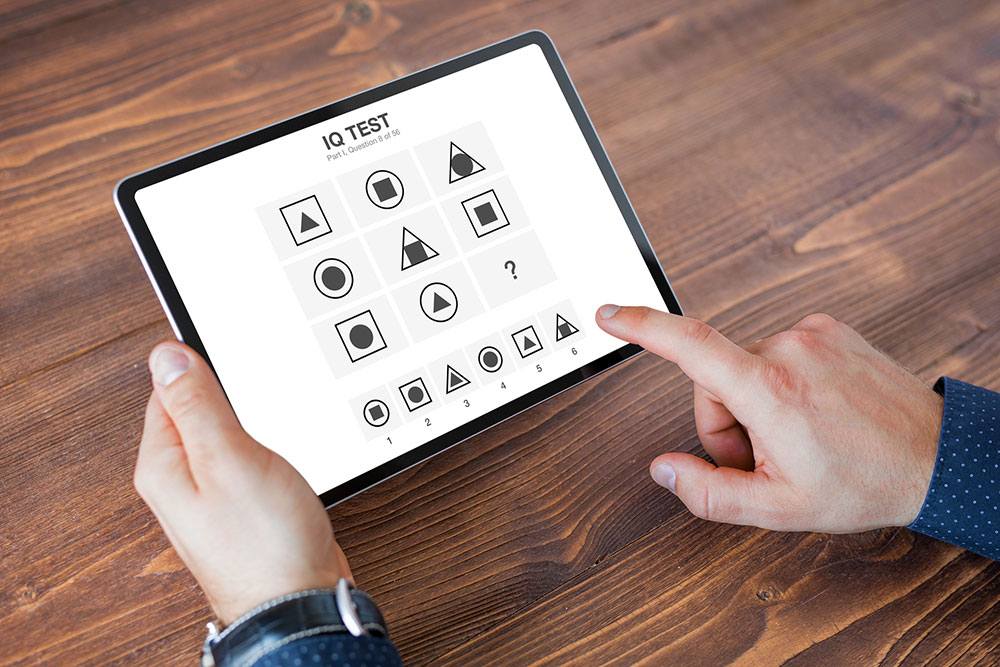
Exploring the Wechsler Adult Intelligence Scale (WAIS)
The Wechsler Adult Intelligence Scale (WAIS): A Cornerstone of Cognitive Assessment
The Wechsler Adult Intelligence Scale (WAIS) is a fundamental instrument in assessing human cognitive abilities. Developed by David Wechsler in 1955, it has undergone multiple revisions to maintain its relevance and accuracy in measuring adult intelligence.
Structure and Domains of the WAIS
The WAIS evaluates individuals between 16 and 90 years old across four primary cognitive domains:
- Verbal Comprehension
- Perceptual Reasoning
- Working Memory
- Processing Speed
These domains collectively provide a comprehensive profile of an individual’s intellectual capabilities.
Test Components and Scoring
The test consists of various subtests designed to measure specific cognitive skills. For example, the Vocabulary subtest assesses language development and word knowledge, while the Block Design subtest evaluates visual-spatial reasoning and problem-solving abilities.
One of the strengths of WAIS lies in its ability to generate both an overall intelligence quotient (IQ) score and separate scores for each cognitive domain. This multifaceted approach allows a nuanced understanding of an individual’s cognitive strengths and weaknesses.
Applications of the WAIS
The WAIS has found applications in numerous fields:
- Clinical Psychology: It aids in diagnosing cognitive impairments and intellectual disabilities.
- Educational Settings: The test helps identify learning disabilities and inform educational planning.
- Neuropsychology: It assists in assessing cognitive functioning following brain injuries or neurological conditions.
- Research: The WAIS serves as a standardized measure of intelligence in various studies.
The Rise of Online Cognitive Assessments
The advent of online cognitive assessments has led to digital versions of IQ tests, including those based on the WAIS framework. These online tests offer increased accessibility and convenience. Users can take the test from their homes, often receiving instant results.
Limitations of Online WAIS-Inspired Tests
However, online WAIS-inspired tests come with significant limitations:
- Lack of Professional Administration: The WAIS is designed to be administered by trained professionals who can observe and interpret behaviour during the test.
- Absence of Controlled Environment: Online tests cannot replicate the standardized testing conditions of an in-person assessment.
- Limited Validity: Without proper validation studies, the accuracy of online versions remains questionable.
- Incomplete Assessment: Many online tests focus solely on IQ scores, neglecting the comprehensive cognitive profile provided by the full WAIS.
- Potential for Misinterpretation: Individuals may need professional guidance to understand their test results.
For these reasons, online WAIS-inspired tests should be approached with caution. They may serve as entertaining exercises or provide a rough estimate of cognitive abilities, but they cannot replace a professionally administered WAIS in clinical or educational settings.
The Future of Intelligence Assessment
The future of intelligence assessment likely involves a blend of traditional methods and technological advancements. Researchers are exploring ways to leverage artificial intelligence and machine learning to enhance cognitive testing. These technologies could potentially:
- Adapt test difficulty in real-time based on performance
- Analyze subtle behavioral cues during test-taking
- Provide more accurate and culturally fair assessments
Emerging Technologies in Cognitive Testing
Virtual reality (VR) and augmented reality (AR) technologies may also be used in future cognitive assessments. These immersive environments could offer more engaging and ecologically valid testing scenarios.
Enduring Principles of the WAIS
Despite technological advancements, the core principles of the WAIS remain relevant. The test’s emphasis on multiple cognitive domains and its standardized administration continue to provide valuable insights into human intelligence.
Evolving Concepts of Intelligence
As research in cognitive science and neuroscience progresses, our understanding of intelligence continues to evolve. Howard Gardner’s concept of multiple intelligences challenges the notion of a single, unified intelligence measured by traditional IQ tests.
This evolving understanding may lead to future revisions of the WAIS or the development of new assessment tools that capture a broader range of cognitive abilities. These include measures of emotional intelligence, creative thinking, or practical problem-solving skills.
The WAIS and its online derivatives represent a continuing effort to quantify and understand human cognitive abilities. While online tests offer increased accessibility, they cannot replace the depth and accuracy of professionally administered assessments.
As technology advances and our understanding of intelligence deepens, cognitive assessment tools will likely become more sophisticated and comprehensive. The challenge lies in balancing technological innovation with the rigorous standards and professional interpretation that have made the WAIS a trusted instrument in psychological assessment.
Ready to embark on the journey of intelligence assessment?
